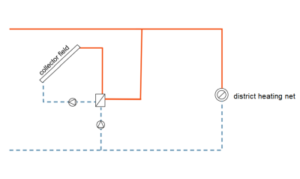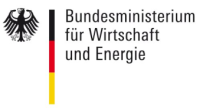DELFIN (Decentralized Feed-In)
Predicting the effects of decentralized integration of heat from renewable energy sources and other heat generators into district heating networks
Subject
- Solar thermal energy
- District heating
- Storage
- Decentralized feed-in
Task
- Research
Funding
- Public funds
Period
06/2016 – 06/2019 (3 years)
Budget
1.37 m. EUR
Description
DELFIN carries on the work started in the “Dezentral” project. DELFIN focuses on the impacts of the connection of decentralized renewable plants on the operation of district heating networks.
Client
Federal Ministry for Economic Affairs and Energy
Partner
- AGFW – German Energy Efficiency Association for Heating, Cooling and CHP (coordinator)
- Steinbeis Research Institute Solites
- TUD – Technical University of Dresden, Institute of Power Engineering, Chair of Building Energy Systems and Heat Supply
Aim
The main goal of the DELFIN project is the development of tools to calculate the changes in the thermo-hydraulic behaviour of district heating grids due to the connection of volatile, decentral connected heat producers in adapted simulation environments in order to derive guidelines for operators. The impact on the existing heat producers and on the components (pumps, pressure, pipes) as well as the effect of different storage locations is reflected realistically.
Implementation
The project focuses on decentralized feed-in of heat into district heating networks. The first step of the research work is to modell or simulate volatile suppliers. The models and profiles developed characterize the variability of the practically relevant values over time, e. g. the mass flow rate and temperature of the heat feed into district heating networks. These models are then coupled to different simulation models for district heating systems. This way, the current and future effects of increasing numbers of decentralized heat sources can be assessed.
On the basis of existing district heating networks, these effects are modelled under different climate conditions. Via simulation studies, the effects on (primary) energy consumptions and the technical boundary conditions can be identified and sensible storage integration solutions proposed. The analysis comprises also an evaluation of the impact on the system efficiency and gives indicators on the economics of the district heating systems.
Results
The simulation tools and models used in the analysis have been tested in practical cases, or tested with data from existing plants (regarding the starting situation). An independent project comittee from the district heating branch ensures that practical aspects are taken into account in the research work.
The results of this research project can be transferred by district heating operators to their own situation and applied there. Selected simulation modules will be available for free in the future.

Downloads and links
Final report of DELFIN (German only)
www.projektinfos.energiewendebauen.de
Contact
Dirk Mangold
mangold@solites.de
This project has received funding from

The sole responsibility for the content of this webpage lies with the authors. It does not necessarily reflect the opinion of the funding organization. Neither the funding organization nor the author are responsible for any use that may be made of the information contained therein.